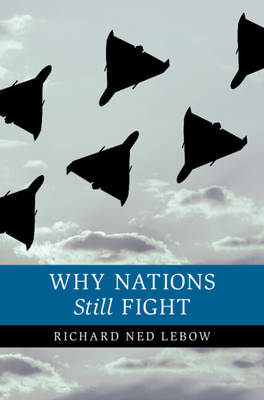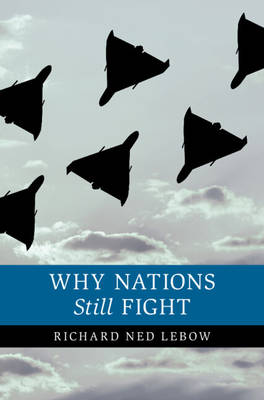
Bedankt voor het vertrouwen het afgelopen jaar! Om jou te bedanken bieden we GRATIS verzending (in België) aan op alles gedurende de hele maand januari.
- Afhalen na 1 uur in een winkel met voorraad
- In januari gratis thuislevering in België
- Ruim aanbod met 7 miljoen producten
Bedankt voor het vertrouwen het afgelopen jaar! Om jou te bedanken bieden we GRATIS verzending (in België) aan op alles gedurende de hele maand januari.
- Afhalen na 1 uur in een winkel met voorraad
- In januari gratis thuislevering in België
- Ruim aanbod met 7 miljoen producten
Zoeken
Omschrijving
Drawing on an original data set of interventions and wars from 1945 to the current day, as well as numerous short case studies, Richard Ned Lebow offers a novel account of their origins and outcomes - one that emphasises miscalculation, failure to conduct meaningful risk assessments, and cultural and political arrogance. In a successive work to Why Nations Fight (2010), he explains why initiators routinely lose militarily and politically when they resort to force, as well as accounting for why the great powers, in particular, have not learned from their failures. Lebow offers both type- and region-specific forecasts for the future likelihood of interventions and wars. His account reveals the inapplicability of theories nested in the realist and rationalist paradigms to the study of war. He argues what is needed instead is an "irrationalist" theory, and he takes the initial steps in this direction.
Specificaties
Betrokkenen
- Auteur(s):
- Uitgeverij:
Inhoud
- Aantal bladzijden:
- 450
- Taal:
- Engels
Eigenschappen
- Productcode (EAN):
- 9781009701082
- Verschijningsdatum:
- 8/01/2026
- Uitvoering:
- Paperback
- Formaat:
- Trade paperback (VS)
- Afmetingen:
- 152 mm x 227 mm
- Gewicht:
- 680 g

Alleen bij Standaard Boekhandel
+ 129 punten op je klantenkaart van Standaard Boekhandel
Beoordelingen
We publiceren alleen reviews die voldoen aan de voorwaarden voor reviews. Bekijk onze voorwaarden voor reviews.









